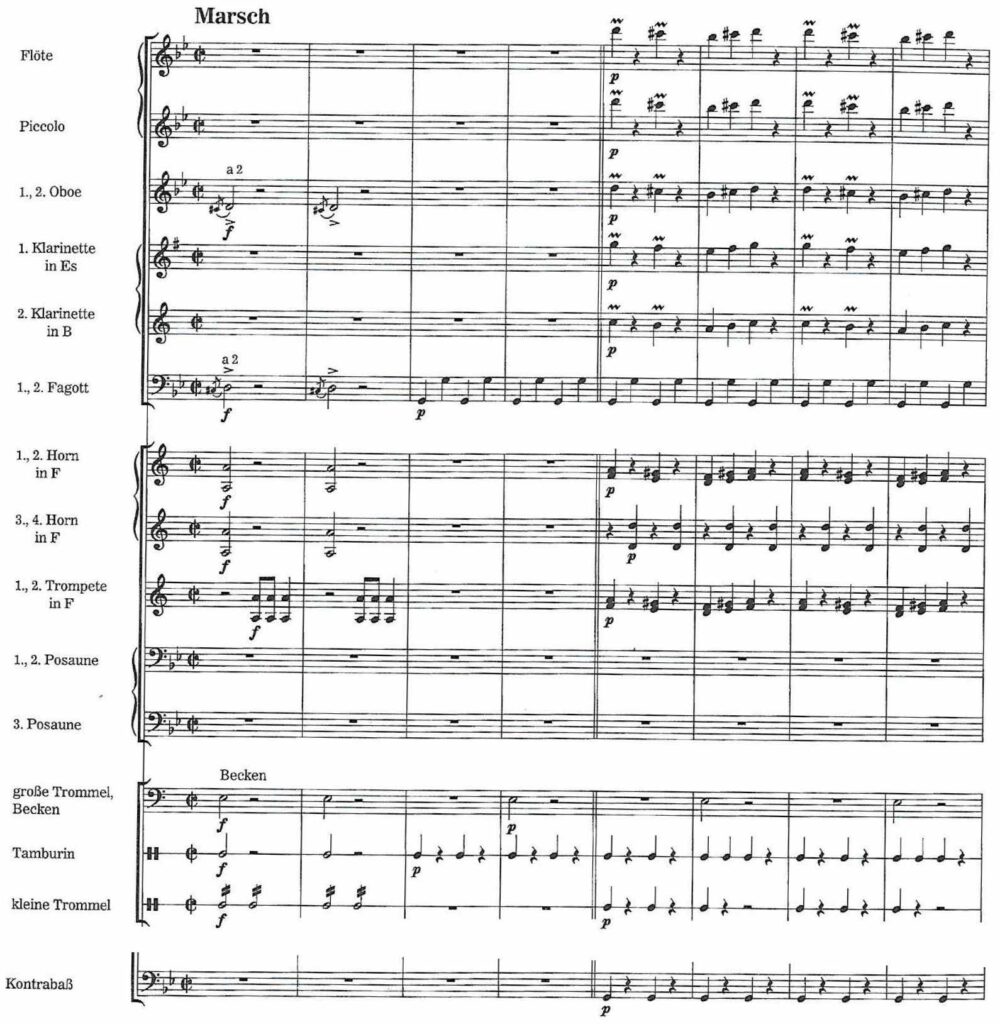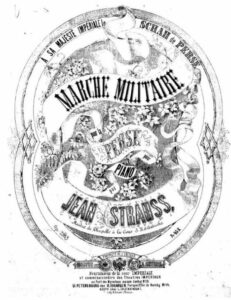Johann Strauss II (1825-1899) Persischer-Marsch, op.289 Persian-March

Neben verschiedenen exotischen Konzertmärschen wie dem “Russischen Marsch”, dem “Ägypti- schen Marsch”, dem “Serbischen Marsch” und dem “Spanischen Marsch” komponierte Johann Strauss II auch einen “Persischen Marsch”. Dieser “Persische Armeemarsch” wurde 1856 für den Schah von Persien Nāser ad-Din Schāh (auch Nasreddin Schah,1831–1896) komponiert. Als Gegenleistung erhielt Strauss den „Persischen Sonnenorden“. Im Sommer 1864 stand das Werk allein an die dreißigmal im Pawlowsk auf den Programmen. Im Trio des Werkes findet sich eine original persische Melodie, die der Komponist aus der Oper „Russian und Ludmilla“ des russi- schen Meisters M.I. Glinka bezogen hat. Das Werk bietet also eine interessante Mischung: es ist der Marsch eines Wieners, der seine persischen Impressionen von einem Russen bezogen hat. Als der kunstsinnige Schah 1873 im Jahr der Wiener Weltausstellung die Donaumetropole be- suchte, wusste niemand mit welcher Hymne der Schah zu empfangen sei. Da erinnerte man sich an den „Persischen Marsch“ von Johann Strauss – der Schah nahm diese Hymne huldvoll an.

In addition to various exotic concert marches such as the “Russian March”, the “Egyptian March”, the “Serbian March” and the “Spanish March”, Johann Strauss II also composed a “Persian March”. This “Persian Army March” was composed in 1856 for the Shah of Persia Naser ad-Din Shah (also Nasreddin Shah,1831-1896). In return, Strauss received the “Persian Order of the Sun”. In summer of 1864 the work alone was on the programs at Pavlovsk about thirty times. The trio of the work contains an original Persian melody, which the composer adapted from the opera “Russian and Ludmilla” by the Russian master M.I. Glinka has obtained. So the work offers an in- teresting mixture: it is the march of a Viennese who got his Persian impressions from a Russian. When the art-loving Shah visited the Danube metropolis in 1873, in the year of the Vienna World Exhibition, no one knew which anthem the Shah was to be welcomed with. Then one remembered the “Persian March” by Johann Strauss – the Shah graciously accepted this hymn.
| sound sample / Tonbeispiel | score/parts PDF download: € 32,- | add to cart / in den Warenkorb |
